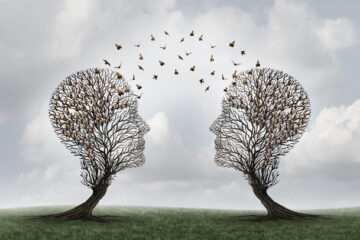 How can young women in developing countries best be prepared for success in their lives and livelihoods? Life preparation requires learning different types of knowledge and skills in formal, non-formal, and informal learning contexts. While there is international recognition of the importance of life skills for child and youth development particularly for achieving positive behavioral change and health outcomes more knowledge is required to better understand the broad spectrum of life skills that young women in developing countries in particular require, and how non-formal education contexts can best deliver these skills. Young women in these contexts face particular challenges in advancing socially, politically, and economically due to poverty and gender-based discrimination. While the formal education sector is expected to deliver the skills young women need to overcome these challenges, the non-formal sector has emerged to become an important space for life skills development, particularly for girls who may have dropped out of school. Yet, while there are a quite a number of existing non-formal life skills programs that target young women in developing countries, there are few studies of their scope, number, and curricula. Life skills enable individuals to translate knowledge, skills, and attitudes into specific behaviors to cope with, navigate, or transform life’s challenges. These challenges are many, varied, and context-specific, but broadly include the need to live and interact with others in a complex society; to satisfy basic cultural, material, and security needs; and to achieve and maintain psychological, social, and mental well-being while minimizing health and environmental risks. For girls, this includes gender-specific challenges, such as achieving good sexual and reproductive health, preventing early marriage, reducing domestic violence, and acquiring empowering livelihoods.
How can young women in developing countries best be prepared for success in their lives and livelihoods? Life preparation requires learning different types of knowledge and skills in formal, non-formal, and informal learning contexts. While there is international recognition of the importance of life skills for child and youth development particularly for achieving positive behavioral change and health outcomes more knowledge is required to better understand the broad spectrum of life skills that young women in developing countries in particular require, and how non-formal education contexts can best deliver these skills. Young women in these contexts face particular challenges in advancing socially, politically, and economically due to poverty and gender-based discrimination. While the formal education sector is expected to deliver the skills young women need to overcome these challenges, the non-formal sector has emerged to become an important space for life skills development, particularly for girls who may have dropped out of school. Yet, while there are a quite a number of existing non-formal life skills programs that target young women in developing countries, there are few studies of their scope, number, and curricula. Life skills enable individuals to translate knowledge, skills, and attitudes into specific behaviors to cope with, navigate, or transform life’s challenges. These challenges are many, varied, and context-specific, but broadly include the need to live and interact with others in a complex society; to satisfy basic cultural, material, and security needs; and to achieve and maintain psychological, social, and mental well-being while minimizing health and environmental risks. For girls, this includes gender-specific challenges, such as achieving good sexual and reproductive health, preventing early marriage, reducing domestic violence, and acquiring empowering livelihoods.
By Gayathri Suren Rajeevan
October 26, 2018



